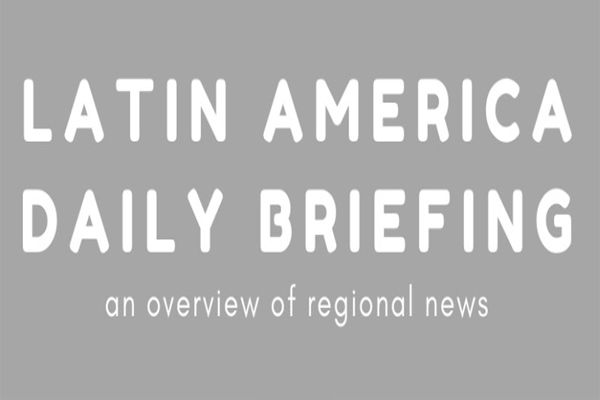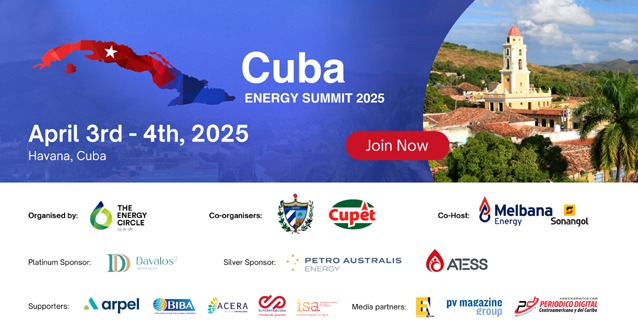
U.S. President Joe Biden met with his Mexican counterpart, Andrés Manuel López Obrador, in the White House yesterday, an encounter aimed at reaffirming cooperation between the two neighbors after AMLO skipped the U.S.-hosted Summit of the Americas last month.
In a joint statement, the two governments vowed to take “immediate and coordinated steps to manage the flows of migrants arriving into our countries” and to tackle soaring inflation by boosting bilateral trade and reducing trade costs. Mexico promised to invest $1.5 billion in infrastructure along the border.
But the meeting also showed differences between the two countries’ leaders: AMLO pointed out his country’s lower gas prices have drawn U.S. customers across the border to fill up their tanks, and gave a long-winded speech that heavily emphasized Mexican sovereignty concerns.
The Mexican leader’s comment about cheaper Mexican gas “was a clear attempt to show that division between Mexican energy policy and U.S. energy policy and what AMLO sees as the implications of each policy,” the Atlantic Council’s Jason Marczak, told the Washington Post. AMLO has prioritized Mexico’s state-owned oil industry and fossil fuel-oriented policies, while Biden has sought to emphasize green energy policies.
(New York Times, Washington Post, NBC, Reuters, see yesterday’s post.)
Regional Relations
- Countries in the developing world don’t want to have to pick sides in the Cold War 2.0, a sign that the new world cleavage isn’t between democracy and autocracy, but rather between the global north and the global south, writes James Traub in Foreign Policy.
- Brazil is looking to buy as much diesel as it can from Russia — Brazilian President Jair Bolsonaro said on Monday that a deal was close with Moscow. Cheaper fuel would bolster Bolsonaro ahead of his reelection bid in October, though it’s unclear how Brazil would buy Russian diesel without coming up against Western sanctions, reports Reuters.
Brazil
- Deforestation in the Brazilian Amazon during the first half of 2022 broke all records — satellite images show 4,000 square kilometers of forest destroyed. Around half of the felling occurred on public lands. What makes the statistic more remarkable is that the forest cutting is taking place during the rainy season, reports the Associated Press.
- An investigation by campaign group Mighty Earth alleges that suppliers selling to leading soya traders have deforested at least 27,000 hectares across 10 farms in the Cerrado region of Brazil since August 2020. (Guardian)
Colombia
- Political and institutional barriers stand in the way of Colombian president-elect Gustavo Petro’s promise to limit deforestation and protect Colombia’s rainforests, reports the Washington Post. Research suggests that mayors who take private campaign donations are selling lax enforcement of environmental regulations.
- Petro has pledged to follow recommendations from the country’s long awaited Truth Commission report released last month. InSight Crime looks at the feasibility of the promise, which would involve resuming peace talks with the ELN, advancing towards drug legalization and reform of the country’s security strategy, and combating active paramilitary groups.
Nicaragua
- Nuns from Missionaries of Charity, the order founded by Mother Teresa, have left Nicaragua after their organization was stripped of its legal status, the latest in the Ortega government’s crackdown on civil society groups. They were escorted by police to the border and crossed into neighboring Costa Rica on foot, reports the BBC.
Chile
- If approved, the new Chilean Constitution would be the first magna carta not written mostly or entirely by men. In fact, most of the delegates were political independents, a reflection of voters’ deep antipathy towards Chile’s political establishment. The influence of social movements is visible in the delegates’ priorities, which include ecology, feminism, and participatory democracy, reports The Nation.
Argentina Government policy, macroeconomic trouble and political crisis are holding the Argentina’s agricultural exports back, argues David Feliba in Americas Quarterly.
Jordana Timerman/Latin America Daily Briefing
http://latinamericadailybriefing.blogspot












